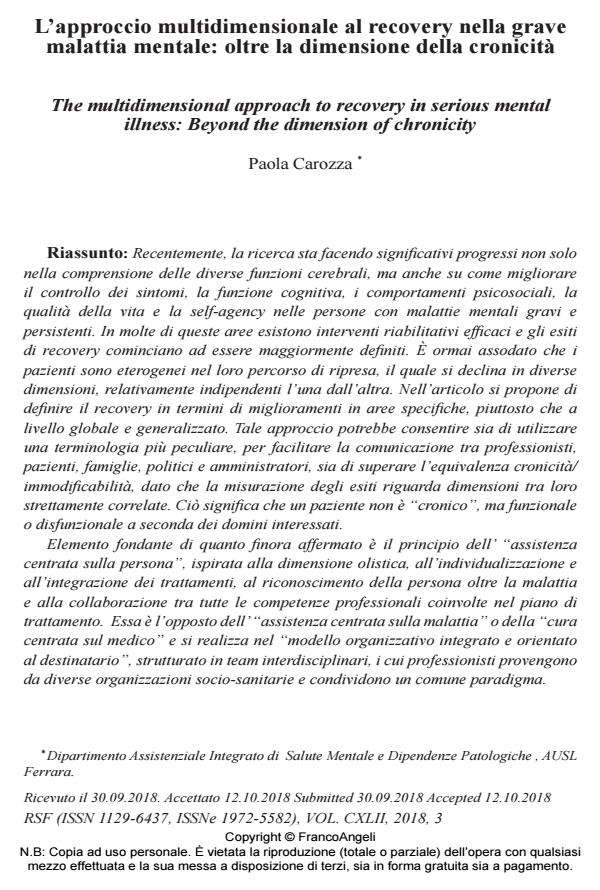The multidimensional approach to recovery in serious mental illness: Beyond the dimension of chronicity
Journal title RIVISTA SPERIMENTALE DI FRENIATRIA
Author/s Paola Carozza
Publishing Year 2018 Issue 2018/3
Language Italian Pages 24 P. 19-42 File size 1894 KB
DOI 10.3280/RSF2018-003003
DOI is like a bar code for intellectual property: to have more infomation
click here
Below, you can see the article first page
If you want to buy this article in PDF format, you can do it, following the instructions to buy download credits

FrancoAngeli is member of Publishers International Linking Association, Inc (PILA), a not-for-profit association which run the CrossRef service enabling links to and from online scholarly content.
Nowadays, research has made significant progress, not only in understanding the different brain functions, but also in improving symptom control, cognitive functions, psychosocial behaviors, quality of life and self-agency in people with severe and persistent mental illnesses. Effective rehabilitation interventions exist in many of these areas and the outcomes of recovery are becoming clearer. It is now well-known that each patient has its own path of recovery, comprising different and relatively independent domains. The author proposes to define recovery highlighting improvements in specific areas, rather than on a global and generalized level. This approach enhances the use of a more precise terminology and facilitates communication - between professionals, patients, families, politicians and administrators - and helps also to overcome the equivalence between chronicity and immutability, considering that outcome measurements take into account closely related domains. Hence, a patient is not to be considered "ontologically chronic", but ‘functional or dysfunctional’ depending on the domain involved. The author, in this article, underlines the fundamental principle of "person-centered care", based on a holistic approach, individualized and integrated treatments and professional collaboration. This approach counters "disease or physician centered" care and proposes an "integrated and user-oriented organizational model", with interdisciplinary teams - from different social or health services - sharing a common paradigm.
Keywords: Chronicity, Multidimensionality, Recovery, Chronic Care Model
Paola Carozza, L’approccio multidimensionale al recovery nella grave malattia mentale: oltre la dimensione della cronicità in "RIVISTA SPERIMENTALE DI FRENIATRIA" 3/2018, pp 19-42, DOI: 10.3280/RSF2018-003003